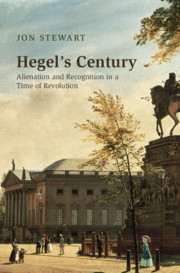Introduction
Published online by Cambridge University Press: 14 October 2021
Summary
The Introduction presents the philosopher G. W. F. Hegel and raises questions about the influence of his Berlin lectures in the 1820s. A remarkable generation came to learn from him, which included figures such as Ludwig Feuerbach, Bruno Bauer, Max Stirner, David Friedrich Strauss, and Heinrich Heine. After his death a second generation of students came to Berlin and were inspired by his legacy. Among these were Karl Marx, Friedrich Engels, Søren Kierkegaard, Ivan Turgenev, and Mikhail Bakunin. All of these thinkers testify to the special intellectual atmosphere in Berlin that arose in connection with Hegel’s philosophy both during his lifetime and in the decades after his death. The present work takes as its point of departure the intellectual milieu at the University of Berlin, which was the fountain of inspiration that nourished the leading figures of the age. The introduction defines Hegel’s concepts of alienation and recognition, which are taken as the guiding themes for a study of philosophy in the nineteenth century. A handful of critical theses are sketched.
Keywords
- Type
- Chapter
- Information
- Hegel's CenturyAlienation and Recognition in a Time of Revolution, pp. 1 - 14Publisher: Cambridge University PressPrint publication year: 2021

